Choosing the right air filter factory is crucial for ensuring the quality and reliability of the products you offer. With numerous options available, it’s important to know what factors to look for when selecting a factory that can meet your business’s needs.
A reliable air filter factory should offer consistent quality, certifications, and strong customer support. It's important to assess their manufacturing standards, supply chain reliability, and after-sales services to ensure they meet your business requirements.
As you explore different air filter factories, you’ll come across various factors that influence the quality of the product. In this article, we will break down what to look for when selecting a trustworthy air filter manufacturer that aligns with your needs.
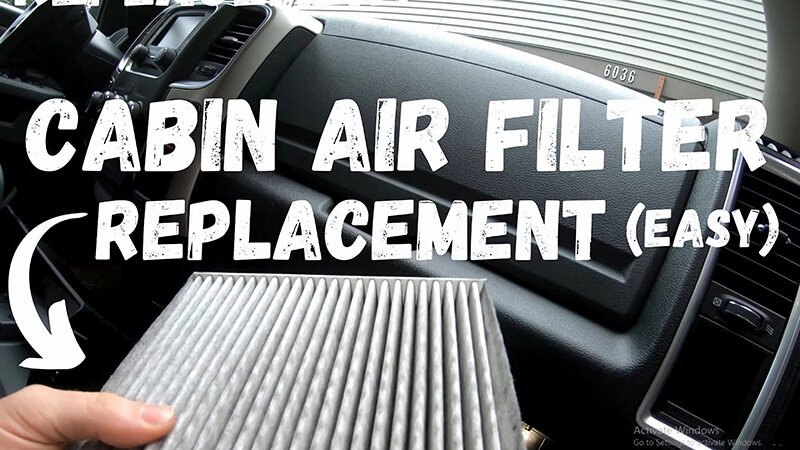
How to determine a good air filter?
Determining a good air filter can be tricky, especially with so many options available. However, focusing on key characteristics like filtration efficiency1, material quality2, and durability3 can help you choose the right one for your needs.
A good air filter should offer high filtration efficiency, use quality materials, and ensure long-lasting performance. These factors are essential in maintaining the air quality4 and performance of a vehicle or an air conditioning system.
When evaluating an air filter, the first thing to consider is its filtration efficiency. This refers to how well the filter captures airborne particles like dust, dirt, and pollutants. Air filters are rated based on their ability to trap particles of specific sizes. For instance, a high-efficiency particulate air (HEPA) filter is known for its ability to trap very small particles, making it ideal for systems that require high air quality standards, such as hospitals or clean rooms.
Filtration efficiency is usually measured using a Minimum Efficiency Reporting Value (MERV)5 scale. The higher the MERV rating, the better the filter’s ability to capture smaller particles. However, the higher the MERV, the more resistance to airflow the filter may create. Therefore, it’s crucial to find a balance between filtration efficiency and airflow to ensure the filter performs optimally without straining the system it’s protecting.
Material quality is another critical aspect to assess when determining a good air filter. High-quality materials ensure that the filter is not only efficient at trapping particles but also durable over time. Air filters can be made from a variety of materials, including pleated paper, foam, and synthetic fibers. For example, synthetic fiber filters are generally more durable and perform better in high-humidity environments, while paper filters are more common in standard automotive applications.
Durability, particularly in automotive air filters, is crucial because a long-lasting filter ensures that you won’t need frequent replacements, which can be both time-consuming and costly. A durable filter can withstand high temperatures and heavy use without compromising its ability to trap contaminants. Be sure to ask manufacturers for the expected lifespan of their filters based on usage conditions.
Here’s a deeper breakdown of the essential characteristics of a good air filter:
| Characteristic | What to Look For | Why It Matters |
|---|---|---|
| Filtration Efficiency | High MERV or HEPA rating for fine particle capture | Ensures high air quality without restricting airflow |
| Material Quality | Synthetic fibers, high-density pleated paper | Ensures longevity and prevents clogging or poor airflow |
| Durability | Resistance to wear and high-temperature tolerance | Reduces the frequency of replacements and ensures consistent performance |
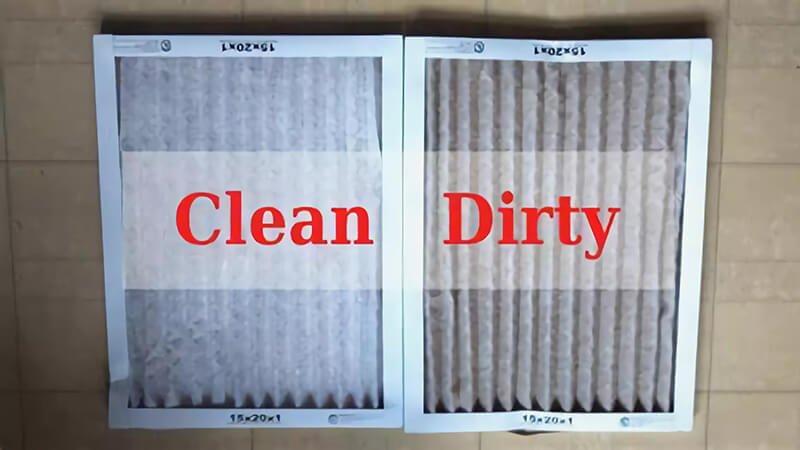
What is an OEM air filter?
OEM air filters are filters made by the Original Equipment Manufacturer6, designed to match the specifications of a particular vehicle or system. Understanding their benefits and differences from aftermarket filters7 can help you make an informed decision when choosing a filter.
OEM air filters are designed specifically for certain vehicles or systems, ensuring optimal fit and performance. They are typically made to meet the exact standards set by the manufacturer, providing reliable and consistent results.
OEM (Original Equipment Manufacturer8) air filters are built to meet the exact specifications and requirements of a vehicle or system. They are engineered to provide a perfect fit, ensuring optimal filtration performance without compromising the system's overall function. When it comes to automotive applications9, OEM filters are often preferred because they have been designed and tested by the vehicle’s manufacturer for maximum efficiency.
The main advantage of an OEM air filter is that it ensures your vehicle or system performs at its best. By matching the original specifications, these filters provide the same level of air filtration and protection as the factory-installed component. For instance, an OEM air filter will fit snugly into the intake system of a vehicle, ensuring that no dust, dirt, or debris can bypass the filter. This is critical for maintaining engine performance, reducing wear, and preventing long-term damage.
One benefit of OEM filters is that they come with manufacturer-backed warranties10. If you use a non-OEM filter, some vehicle manufacturers may void certain warranties, particularly if the non-OEM filter causes any damage. OEM filters are tested rigorously to meet stringent standards, so you can trust that they will work well within the design parameters of your vehicle.
Additionally, OEM air filters tend to have a longer lifespan than aftermarket options. Since they are specifically designed for the vehicle, they provide better protection and maintain engine efficiency for a longer period. This translates to fewer maintenance visits and improved overall performance. On the downside, OEM filters can be pricier than aftermarket filters, making them a less attractive option for those who prioritize affordability.
Here is a comparison of OEM vs. aftermarket air filters:
| Criteria | OEM Air Filter | Aftermarket Air Filter |
|---|---|---|
| Fitment | Perfect fit, tailored to specific vehicle models | May require additional modifications for proper fit |
| Performance | Ensures optimal filtration and airflow | Varies by brand and type of filter |
| Durability | Longer-lasting due to OEM standards | May have shorter lifespan depending on quality |
| Warranty Coverage | Often covered by manufacturer’s warranty | May void manufacturer’s warranty in some cases |
| Cost | Higher cost due to brand name and precision | Typically lower cost |
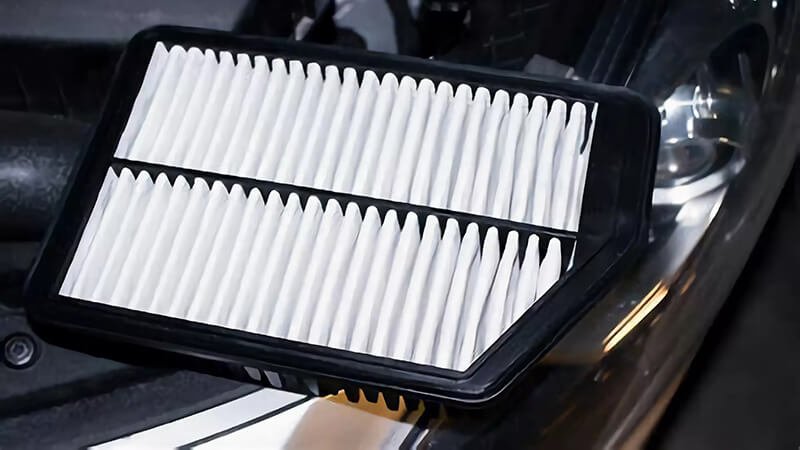
What brand makes the best air filters?
The brand of the air filter can significantly affect its performance and reliability. With numerous brands on the market, it can be difficult to choose the best one. Knowing which brands have a proven track record for producing high-quality filters can help narrow your options.
Brands like K&N11, Fram12, and Bosch13 are well-known for their high-performance air filters. These brands have established a reputation for providing filters that offer superior filtration, durability, and reliable performance.
When searching for the best air filter brands, it’s essential to look for companies that are well-established in the automotive14 or air filtration industry. K\&N, Fram, and Bosch are some of the top names recognized for producing high-performance air filters.
K&N is especially popular for its high-flow performance filters, which are often used in racing applications. Their filters are designed to increase airflow, thereby improving engine efficiency and performance. The brand is also known for providing reusable filters, which can be cleaned and used multiple times, making them a cost-effective choice for enthusiasts who need superior filtration without frequent replacements.
Fram, on the other hand, is one of the most well-known air filter brands for everyday vehicles. Their filters are designed to offer excellent protection while maintaining optimal airflow to keep engines running smoothly. Fram offers a wide variety of filters, including options for both standard and high-performance vehicles, making it easy to find the right filter for different needs. Their filters are typically made of a pleated paper material that provides solid filtration without restricting airflow.
Bosch is another trusted brand that produces air filters with a reputation for quality and reliability. Known for its engineering expertise, Bosch air filters are designed to meet OEM standards while offering long-lasting protection. They are highly rated for their ability to trap even the smallest particles, ensuring clean air for vehicle engines or HVAC systems. Bosch is also recognized for producing filters that are eco-friendly, using recyclable materials to reduce environmental impact.
Here’s a comparison of these top air filter brands:
| Brand | Strengths | Popular Models |
|---|---|---|
| K&N | High-flow performance, reusable filters | K&N 33-2301, K&N 33-5001 |
| Fram | Cost-effective, reliable for everyday vehicles | Fram CA10754, Fram CF10134 |
| Bosch | Meets OEM standards, long-lasting protection | Bosch 5330, Bosch 14560 |
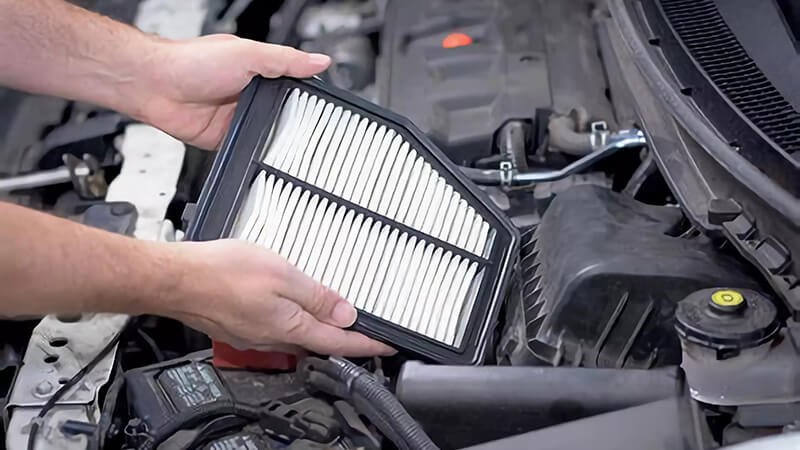
Does the brand of an air filter matter?
The brand of an air filter can play a crucial role in its overall performance, reliability, and durability. While cheaper options may seem appealing, investing in a reputable brand often leads to better long-term results.
Yes, the brand of an air filter matters because it reflects the quality, performance, and durability of the filter. Reputable brands have a proven track record of producing filters that meet industry standards and offer long-term value.
The brand of an air filter does matter because it can affect the efficiency and lifespan of the filter. A well-established brand with a strong reputation typically invests in research, development, and quality control to ensure that their products meet high standards. Filters from reputable brands are more likely to offer better filtration, fitment, and overall performance compared to generic or lesser-known brands.
A good air filter brand will also offer superior durability. Many top brands use high-quality materials and advanced filtration technology to ensure the filter can withstand wear and tear over time. As a result, these filters can last longer, saving you money on replacements and offering better protection for the engine or air system they are installed in.
Moreover, established brands tend to provide better customer support15 and warranties16. If you ever encounter an issue with a filter, a reliable brand will have a customer service team ready to assist you, and they may offer warranties or satisfaction guarantees. This is especially important for critical components like air filters, where poor quality or a defective filter can lead to costly repairs or system failure.
On the other hand, filters from lesser-known brands may not have the same level of quality control, leading to inconsistencies in performance and a higher risk of failure. While they may offer lower prices, the long-term costs associated with poor performance or frequent replacements can outweigh the initial savings.
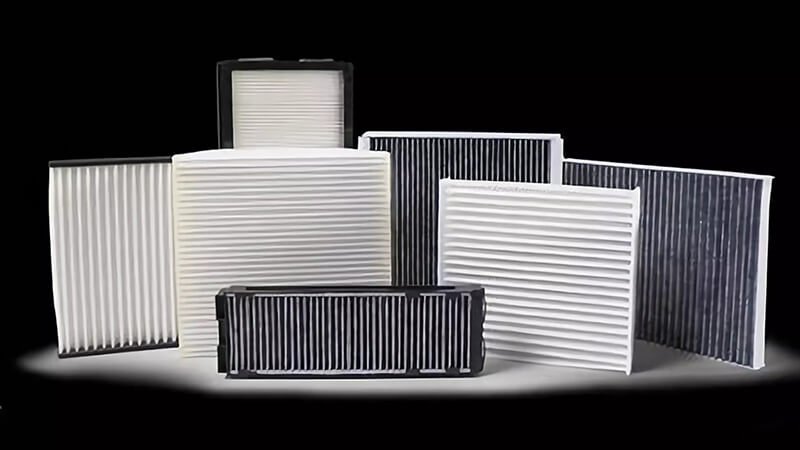
Conclusion
Choosing a reliable air filter factory involves understanding what to look for in terms of quality, brand, and performance. By considering factors such as filtration efficiency, material quality, and manufacturer reputation, you can ensure that your air filters meet the highest standards. Building a relationship with a trusted supplier and selecting reputable brands will ultimately benefit your business and your customers.
-
Learn about how filtration efficiency impacts the performance of air filters. ↩
-
Find out which materials ensure the best air filter performance and durability. ↩
-
Understand the key factors that influence the durability of an air filter. ↩
-
Discover why maintaining good air quality is critical for vehicle and HVAC system performance. ↩
-
Get detailed information on the MERV scale and how it affects air filter efficiency. ↩
-
Learn the meaning and significance of OEM in automotive and other industries. ↩
-
Understand the differences between OEM and aftermarket air filters. ↩
-
Find out the role of OEM in creating automotive parts and accessories. ↩
-
Learn why OEM filters are important for vehicle efficiency and protection. ↩
-
Understand the benefits of manufacturer-backed warranties on OEM parts. ↩
-
Learn about the high-flow performance filters produced by K&N and their benefits. ↩
-
Discover why Fram is a trusted brand for automotive air filters. ↩
-
Understand why Bosch is known for reliable and eco-friendly air filters. ↩
-
Explore the role of air filters in automotive applications and their importance. ↩
-
Learn why reliable customer support is essential for resolving air filter issues. ↩
-
Understand the importance of warranties in ensuring air filter quality and protection. ↩












